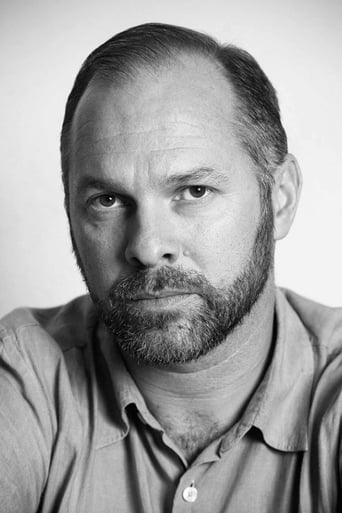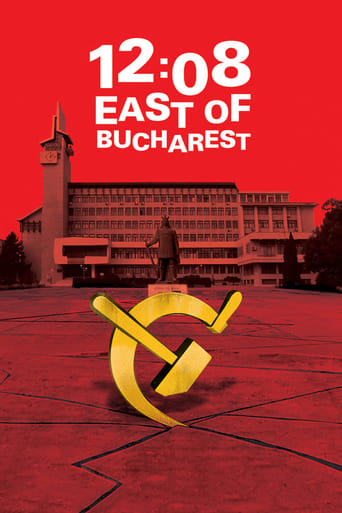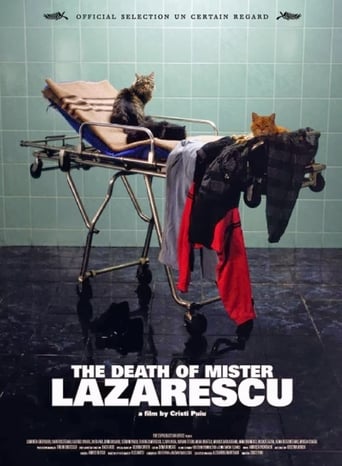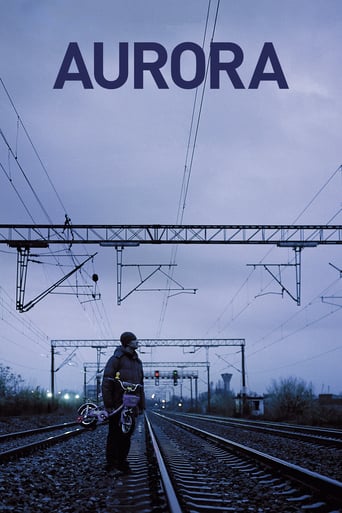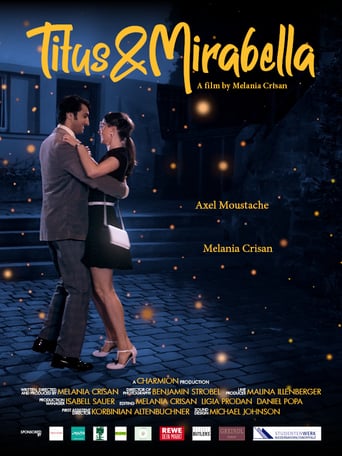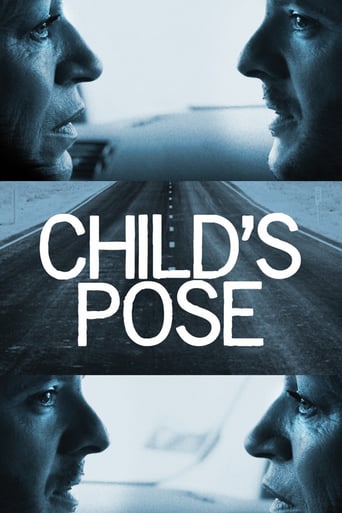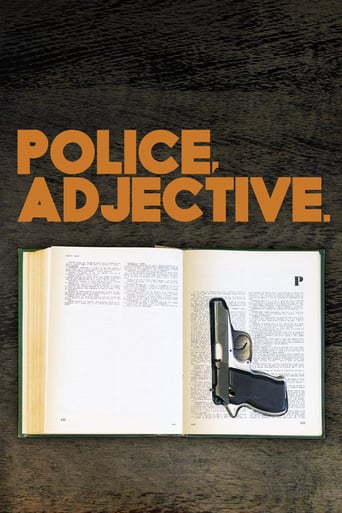
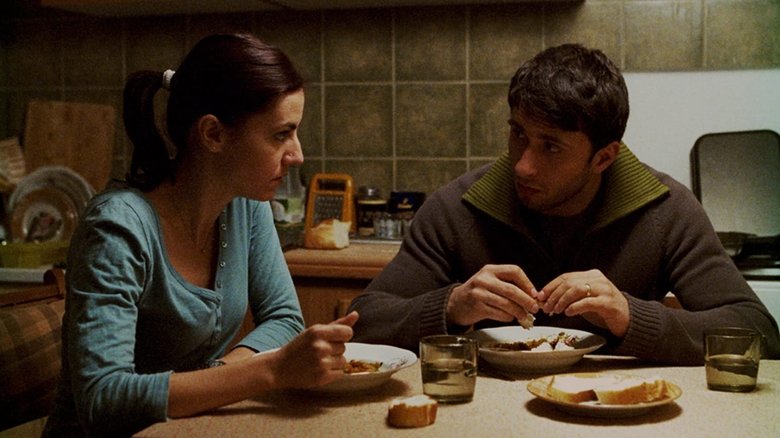
Police, Adjective (2010)
A cop named Cristi must go undercover to trail teen Victor who is suspected of selling pot in the north-eastern city of Vasliu.
Watch Trailer
Cast
Similar titles
Reviews
Sick Product of a Sick System
It’s not bad or unwatchable but despite the amplitude of the spectacle, the end result is underwhelming.
The story, direction, characters, and writing/dialogue is akin to taking a tranquilizer shot to the neck, but everything else was so well done.
This is a dark and sometimes deeply uncomfortable drama
To see this movie now you are probably going to have to get it on DVD. Too bad, because this is a case where it probably works a lot better in the theater than on your TV screen or laptop. Not for the usual reason - there is no "spectacle" that you will miss on the small screen. But in a movie theater you are stuck in your seat, it is dark, they make you turn off your phone, and you are required to watch the screen without distraction.The action of this film is .... slow. Yes, it is. There are long takes of nothing but what Cristi, the cop, sees as he is staking out a house that nobody is going in or out of, or shots of Cristi standing in front of some kind of little store with soccer graffiti on it, or of offices in the police station where everyone is waiting motionlessly for someone to get off the phone or come back from somewhere. All of the film's events, which would fit into 30 seconds of a "Law and Order" episode, are here uncompressed into their real tedious reality. So if you are watching it at home on the small screen, there will be temptations - to check your email, to switch over to Google to decipher the soccer graffiti, to make a pot of coffee, and then you find that you have paused it in the middle and you now have to get to work and come back to it later. I urge you to anticipate these temptations. Mark off the whole two hours on your calendar, turn off your phone, get all your snacks ready ahead of time, find a comfy chair, and just sit and watch it. And when you do, you won't - may not - find it boring at all. You may find it suspenseful. You may get into the mindset of the cop, who is under pressure from his bosses to wind up this routine "nothing" case by doing the routine thing that everyone expects him to do to a basically innocent kid, but who is willing to spend a lot of his time waiting - watching - hoping that something will come into the screen that will save him from having to do it. In this you will be aided by the fact that the utterly "non-cinematic" character of the acting, the locations, the sets, the pace of the direction promote the impression that you are actually watching a gritty sad reality through some fly-on-the-wall spycam. Even down to the "management-by-dictionary" scene. I am willing to bet that more than one lazy, uncaring, dunderhead boss conducts the affairs of his or her office in the real world using exactly this clumsy, patronizing and abusive technique. In your own life you may not ever have the opportunity to save the world from evil giant robots in the blink of an eye, but you may have to make a moral choice involving one person's future. This movie gives that kind of choice the time and attention it deserves.
Police, Adjective This is an absolutely brilliant film. Many films have been made in Germany or the Czech Republic or Spain or various Latin American countries, and so on and on, about periods of interregnum between one form of government and another. Writer/Director Porumboiu goes right to the details in Romania. He takes the smallest possible case, an undercover officer checking out a high-school drug dealer, and makes us wonder about the biggest metaphysical situations involving law and justice. Wisely—almost incredibly—Porumboiu sets aside macropolitics and doesn't make a partisan or political film. Instead, he forces us to imagine the links between private behaviour and philosophical concepts.Many people are constantly writing that the movie is too slow or too long. Hell, I say that about car-chase movies that are 90 mins. of explosions or 130 mins. of James Cameron's computer-animation teams. There is not one wasted second in this film. It is not indulgent in the slightest. There are no car chases. This is a movie about a narc tailing a high-school kid. That's what it is. The only time the movie really really drags is when Cristi, the narc/undercover guy, is watching the home of the alleged squealer. That does go on for a long time, but, structurally, it makes sense, and Porumboiu leavens it a bit by making Cristi get tea from a nearby shop and discuss what he's doing in a communist-realist way that chips in to the overall narrative.The way Porumboiu binds the film together is admirable—we see Cristi early on telling his overweight colleague that that colleague just can't play soccer with them—those are the rules. Then Cristi gets told by the prosecutor that he isn't entitled to comment on laws. And then there's Cristi's girlfriend (the rules of language), and Zelu (sees all laws, accepts none, really) and Cristi's boss, Angelache (the rules of law, expressed by language).The endless opening and closing of doors, the bureaucracy, the people who think their lives are so much more important than yours, is compelling. Cristi never really imposes. He just has a sense of what is right (and he is a policing figure). His overweight colleague puts upon him. His lazy (political but useless) colleague Zelu is of no help. He goes to the prosecutor (Marian Ghenea—in a truly wonderful performance) and is granted a promise that we later learn has probably been betrayed. Costi, Vali, Doina—all are unwilling to act, knowingly or unknowingly, towards justice. Part of what made The Death of Mr Lazarescu by Puiu so compelling was precisely the fact that one knew that, whether or not you had the greatest American health insurance in the world (or even the most money in the world, maybe), or you lived in a country with one of the greatest public health insurance programs there were, you still were not immune to basic human failings. If Puiu did that with health care and medicine, Porumboiu does that with law and justice and society. What Poromboiu shows us, relentlessly, is that our lives are contingent upon others, and if others treat us the way we treat them, well. . . .There just isn't a bad performance in this film. One would finally have to say that Dragos Bucur is effective in his impossible role. He is the hunched anti-hero post-communist but still communist narc. His girlfriend, Anca, can talk of anaphoras, but when he tries to express what he knows is right, the state, in the person of well-known Vlad Ivanov, gets Cristi out a dictionary from which he cannot escape. Dictionaries, after all, like language, are arbitrary documents. A "tree" in Brazil means something entirely different from a "tree" in Siberia. Language is arbitrary and contextual, and this sophisticated film works with this knowledge.This is a carefully filmed movie that rarely draws attention to itself. As far as I can tell, every time Cristi is shadowing someone, the effect is very authentic. There are a lot of long shots. Close shots are sparing. Office shots are always as they should be or oblique. When Cristi gets back to his flat, the way Porumboiu films it so that we could only ever see the hallway and never a bedroom or any kind of intimacy at all is very, very wisely done. In some respects, Porumboiu boldly refuses to answer American hopes. He gives us no cheesy intimacy, and keep us always focused on Cristi, the man outside—outside shadowing a kid who may be a drug dealer, outside the changing Romanian legal system, outside his girlfriend's perfect—but changeable—command of language. Maybe Anca is the one who really ought to be determining things, for images are symbols, and symbols are images.As for the climactic scene, 20 mins. of pure dictionary: I can't think of 20 other minutes I'd love to watch more, from _The Getaway_ to _Unforgiven_. The climax of _Police, Adjective_ is utterly riveting, if you've grasped what has gone on before.This is just an all-around great movie. At times, you can sense opportunities for indulgence, but Porumboiu never takes them. I hope he'll continue not to.Yes, it's a given that people not from the U.S. may not understand movies from other places. But I'm getting a little bit tired of this. I can watch movies from Korea or Argentina or just about any country in the world and enjoy them and understand them and feel my way into them and engage with them intellectually and emotionally.Police, Adjective is definitely going to go down as a very important film. It comprises the human and the metaphysical the while excising the obvious political. That makes it political. This is an important film. Negative reviewers desperately cling to seeing "police" as a noun, and that is not what this film is about. ww
The Romanian film wonder goes on and what's wonderous about it is that it's not afraid of life, like most movies around the world are. Since the beginning of the 1900s, there's an agreement about that life being absolutely boring. Lucky thing you can cut the film.But here, we follow the young policeman on a routine mission, trying to investigate a supposed drug crime. The camera goes on for ten minutes, nothing happens or more likely...everything happens. What's morality about. Following the law or following your conscience? Or is it the same thing? Or should it be? An action drama there the action takes place inside the characters and the viewers. And that's absolutely fair enough.
I saw this on IFC in Theaters and it was a really poor choice for a Christmas movie.File this under the definition of glacially boring. This played the New York Film Festival? Romanian film concerns a cop who tailing a kid as a possible drug suspect but can't get anything on him. We watch as he stands ans watches and waits, and follows, and avoids his bosses who want a bust, and eats meals with his wife and watches some more. And then he walks around and he watches some more. And then he gets called into his bosses office and reads the dictionary and then...I spent much of the running time trying to deduce how this got a release anywhere. I think the film was sold as the next big thing in Romanian cinema after Four Months Three Weeks and Two days. I think they were sold a bill of goods. This is a snoozer. Nothing happens....or rather nothing that requires a two hour running time. Only for those who like paint drying (IFC listed this as a comedy, but I don't find it funny) Take a pass.

